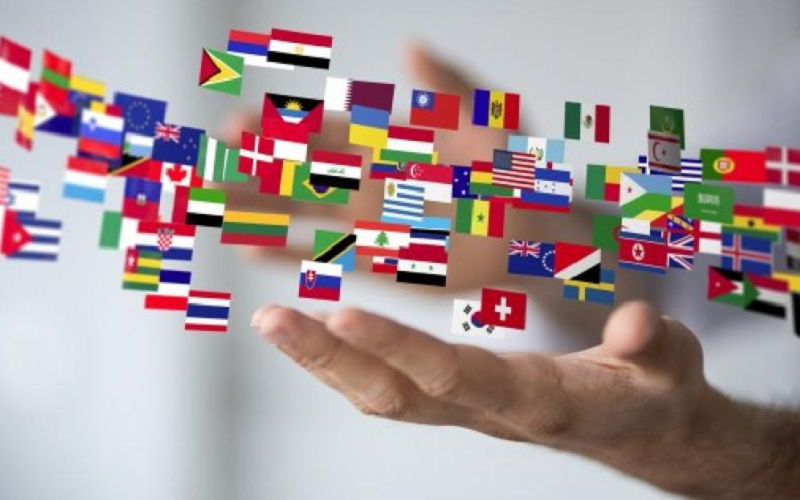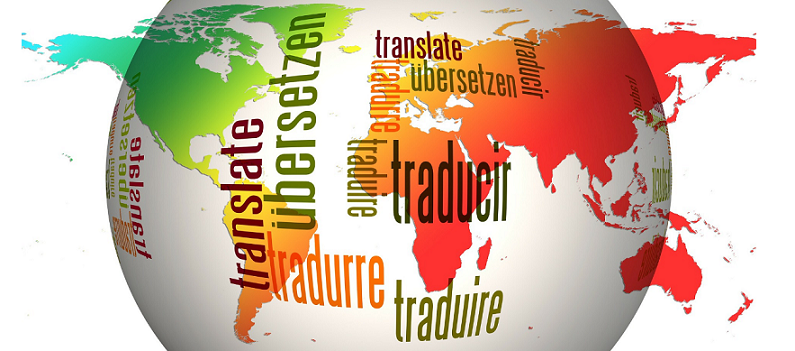
In today’s globalized world, language plays a pivotal role in shaping economic activities and fostering international trade and investment. As business transcends borders, the interplay between linguistic diversity and economic performance becomes increasingly significant. Here we delve into the multifaceted relationship between language and economic prosperity and explore how linguistic diversity influences global trade patterns, foreign direct investment, and the strategies employed by businesses and governments to overcome language barriers.
The Role of Language in Global Trade
Language, as a fundamental tool for communication, plays a crucial role in facilitating international trade. In an increasingly interconnected world, businesses must navigate diverse linguistic landscapes to successfully trade across borders.
Communication as a Key Factor in International Business
Effective communication is the cornerstone of any successful business transaction. It enables parties to express their needs, negotiate terms, and understand one another’s expectations. In the context of global trade, language barriers can complicate these exchanges, leading to misunderstandings, delays, and potentially lost business opportunities. Conversely, companies that can communicate seamlessly with their international counterparts are better positioned to foster strong relationships, negotiate favorable terms, and explore new markets.
Examples of Language Barriers Leading to Misunderstandings and Missed Opportunities
Language barriers can manifest in various ways, from simple miscommunications to more complex cultural misunderstandings. For example, a company looking to export its products may struggle to find distributors or customers in a foreign market if its marketing materials are not properly translated or adapted to the local language. Negotiations can break down or become protracted due to misunderstandings caused by language differences. In some cases, linguistic misunderstandings can even lead to legal disputes or damaged reputations, with long-lasting consequences for the businesses involved.
The Cost of Translation and Interpretation Services in Global Trade
To mitigate language barriers, businesses often rely on translation and interpretation services. These services can be costly, but they are essential for ensuring clear communication and minimizing misunderstandings. The global language services market, which includes translation, interpretation, and localization services, was valued at approximately $56.18 billion in 2021 and is expected to continue growing as international trade expands. This growth highlights the increasing need for businesses to invest in language services to remain competitive in the global market.
The Advantages of Multilingual Staff in International Trade
Having a workforce that is proficient in multiple languages can give companies a competitive edge in global trade. Multilingual employees can help facilitate communication with international partners, understand the nuances of local markets, and build trust with customers. They can help businesses avoid the costs and potential inaccuracies associated with outsourced translation services. As a result, many companies are placing greater emphasis on language skills during the hiring process and investing in language training for their staff.
The Role of English as a Global Business Language
English has emerged as the dominant language for international trade, serving as a common means of communication between businesses from different linguistic backgrounds. The widespread use of English in global trade has simplified some aspects of international communication, but it is important not to overlook the value of other languages. Companies that can communicate in their partners’ native languages are often better positioned to understand local markets, build strong relationships, and gain a competitive advantage.

The Impact of Linguistic Diversity on Trade Patterns
Linguistic diversity plays a crucial role in shaping global trade patterns, often dictating the ease and success of economic transactions between countries. Understanding these dynamics can help businesses and policymakers make more informed decisions when it comes to international trade.
Linguistic Proximity and Bilateral Trade
Countries that share linguistic similarities tend to engage in more bilateral trade. This can be attributed to the reduced communication barriers and greater cultural understanding between trading partners. For example, studies have shown that countries with a common official language trade twice as much with each other compared to countries without such linguistic ties. Countries with colonial ties, such as France and its former African colonies, often continue to maintain strong trade relationships due to their shared language.
Common Languages in Regional Trade Blocs
Language plays a key role in regional trade blocs, where member countries often adopt a common language to facilitate communication and cooperation. For instance, the European Union (EU) has 24 official languages, but English is widely recognized as the lingua franca, easing communication between member states and boosting trade within the bloc. Similarly, the African Union has multiple official languages, including English, French, Portuguese, and Arabic, to promote economic integration among its diverse member countries.
Localization and Consumer Preferences
Language can also impact trade by shaping consumer preferences for products and services. Localization, the process of adapting products or services to meet the needs of a specific market, is crucial for businesses seeking to penetrate new linguistic markets. This includes translating marketing materials, product labels, and user manuals, as well as adapting product features to cater to local tastes and preferences. Companies that successfully localize their offerings are more likely to gain a competitive edge in foreign markets.
Cultural Understanding and Marketing Strategies
Language skills and cultural understanding play a vital role in the development of effective marketing strategies. A deep comprehension of the target market’s language allows businesses to craft marketing messages that resonate with local consumers, which can ultimately drive sales and brand loyalty. Understanding the nuances of a culture can help businesses avoid marketing blunders that may offend or alienate potential customers.

Linguistic Diversity and Foreign Direct Investment (FDI)
Foreign direct investment (FDI) is a critical driver of economic growth and development. It involves the flow of capital from one country to another to establish or expand businesses, create jobs, and transfer technology and know-how. In this context, linguistic diversity can have both positive and negative impacts on FDI, shaping the decisions of investors and influencing the attractiveness of a country as an investment destination.
Language Barriers and FDI Challenges
Language barriers can pose significant challenges for FDI. Communication is a fundamental aspect of business operations, and when investors and local businesses face difficulties in understanding each other, it can hinder the negotiation process, limit collaboration, and even lead to costly misunderstandings. Foreign investors may struggle to navigate complex local regulations, legal systems, and bureaucratic processes when language barriers are present. This can discourage investment and impede the establishment or expansion of businesses in linguistically diverse countries.
Linguistic Skills as a Competitive Advantage
Conversely, linguistic diversity can also provide countries with a competitive advantage when attracting FDI. A multilingual workforce can facilitate communication with foreign investors, making it easier to conduct business and forge partnerships. For example, countries like Switzerland and Singapore, known for their linguistic diversity and high levels of English proficiency, are often considered attractive destinations for FDI.
Governments can also play a role in promoting language learning and cultural exchange to attract FDI. By investing in language education, cultural training programs, and international exchange initiatives, countries can build a workforce with the linguistic and cultural skills needed to engage with foreign investors effectively. This can also serve to showcase a country’s commitment to global economic cooperation and openness.
The Importance of Localization for FDI
For multinational corporations (MNCs) seeking to enter new markets, linguistic diversity presents both opportunities and challenges. Successful localization is essential for MNCs to adapt their products, services, and business practices to the local environment. This includes translating promotional materials, user manuals, and legal documents, as well as ensuring that product features and marketing messages resonate with local consumers. By mastering localization strategies, MNCs can overcome language barriers and tap into the potential of linguistically diverse markets.

Overcoming Language Barriers in International Business
As the global economy continues to integrate, businesses and governments must find ways to overcome language barriers to foster effective communication, collaboration, and trade. This section highlights several strategies for addressing language barriers in international business, including leveraging technology, investing in language and cultural training, and promoting linguistic cooperation at the policy level.
Technology and Language Gaps
Advancements in technology have made it increasingly possible to bridge language gaps in international business. Machine translation tools, such as Google Translate, have become more sophisticated and accurate, allowing businesses to communicate more effectively across language barriers. Artificial intelligence (AI) can now facilitate real-time translation in video conferences and other communication platforms, enabling smoother conversations between international partners.
Language learning apps and platforms, such as Duolingo and Babbel, also provide accessible and engaging ways for individuals to acquire new language skills, which can be valuable assets in the global marketplace.
Language and Cultural Training for Businesses
Investing in language and cultural training can be a game-changer for businesses operating internationally. By offering language courses and cross-cultural training programs for employees, companies can develop a workforce that is better equipped to communicate with international partners, understand local market dynamics, and navigate foreign business environments.
In addition to in-house training, businesses can also consider hiring linguists and cultural consultants to assist with international projects. These experts can provide valuable insights and guidance on effectively navigating the linguistic and cultural landscape of a target market, helping to ensure successful business outcomes.
Government and International Organization Initiatives
Governments and international organizations play a crucial role in promoting linguistic cooperation and easing language barriers in international business. Language and cultural exchange programs can help foster greater understanding and collaboration between countries, while standardization and harmonization of business practices can make it easier for companies to navigate the complexities of international trade.
Governments can also invest in language education and promote multilingualism within their education systems to build a workforce that is better equipped for the global economy. By supporting the learning of widely spoken languages such as English, Chinese, and Spanish, as well as regional languages relevant to a country’s trade partners, governments can help businesses overcome language barriers and access new markets more effectively.
International organizations, such as the World Trade Organization (WTO) and the United Nations (UN), can facilitate cooperation between countries to develop common standards and best practices in areas where language barriers may hinder trade and investment. This could include harmonizing regulations, streamlining customs procedures, and encouraging the use of a common language for official documents and communication.
Building Global Networks and Partnerships
Another strategy for overcoming language barriers in international business is to establish partnerships with local firms, agents, or distributors who have a deep understanding of the local language and culture. These partners can help bridge communication gaps, navigate local business practices, and provide valuable insights into consumer preferences and market trends. By leveraging the expertise of local partners, businesses can more effectively overcome language barriers and tap into the potential of foreign markets.







